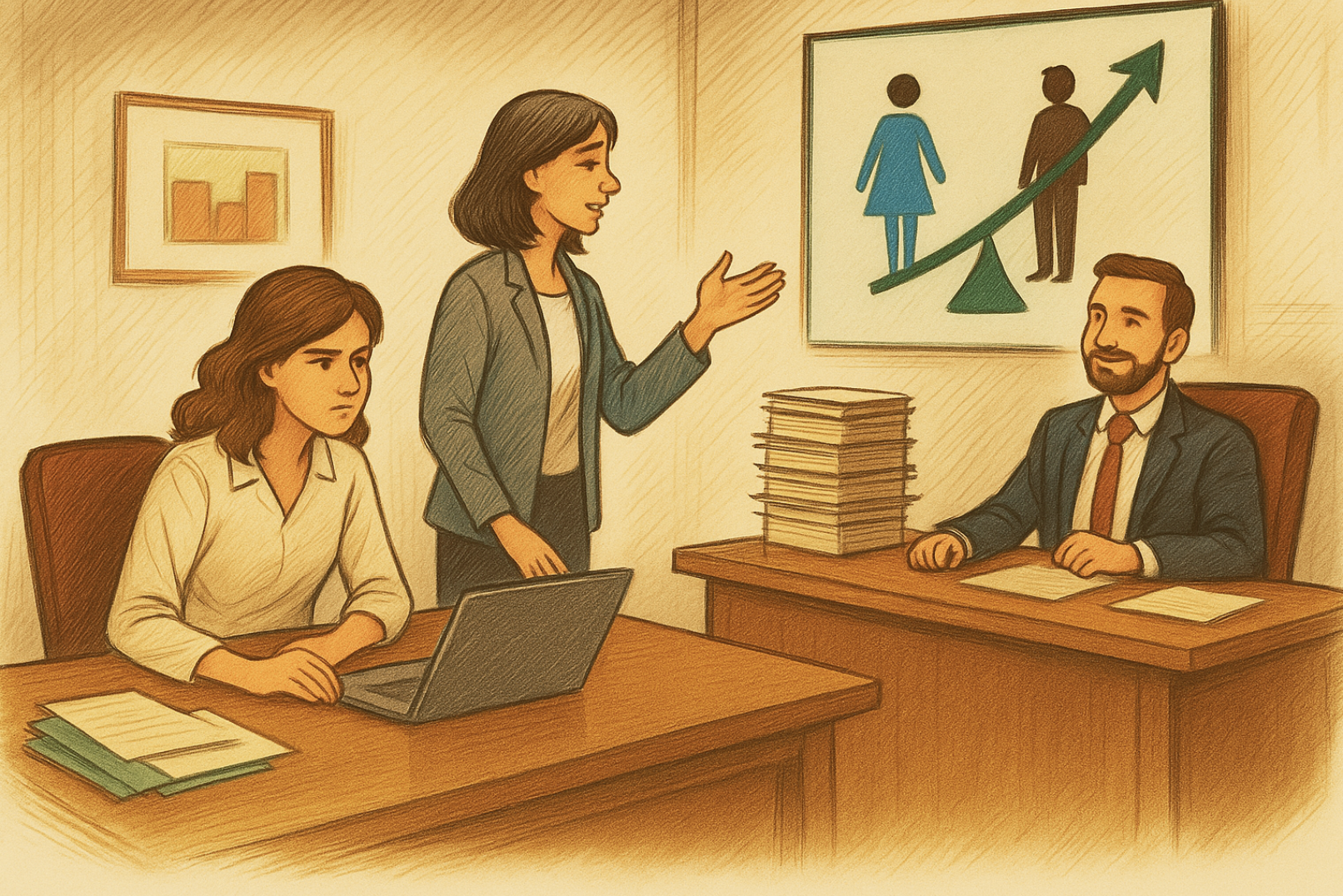Rethinking Power and Opportunity in the Greece: Gender Equality in the Workplace

- Summary
- Fact Sheet
- Project Details
This pilot project addressed persistent gender inequalities in Greek workplaces by combining philosophical reflection, legal analysis, and participatory education. Co-developed with the NGO Equal Workspaces, it targeted university students, early-career professionals, and the public, focusing on the structural, cultural, and emotional dimensions of workplace discrimination.
Through the DISC methodology, the students designed a workshop series (Gender at Work), developed educational tools, staged a live public simulation, and created a reflective visual installation titled Invisible Labor. The project contributed to SDGs 5 (Gender Equality), 8 (Decent Work and Economic Growth), 10 (Reduced Inequalities), and 4 (Quality Education).
Challenge
Gender-based discrimination remains deeply embedded in Greek work culture, from wage gaps to microaggressions. Despite formal legal protections, practical awareness and institutional accountability are limited. This project aimed to make invisible workplace inequalities visible and actionable, especially for young professionals entering the labor market.
Target Groups:
The primary target group was young adults aged 20–30 in Thessaloniki, including university students, recent graduates, and early-career job seekers. Indirect beneficiaries included members of the public, HR professionals, and educators reached through the public event and visual installation.
Solution
The students created a workshop series, role-play materials, and a visual installation to explore and challenge workplace bias. Activities included simulations, ethical discussions, and the use of real case studies to foster empathy and dialogue. All tools were designed to be modular, bilingual, and adaptable for broader civic education.
Innovation
The project integrated emotional and analytical approaches to learning—combining legal frameworks, ethics, role-play, and visual storytelling. The live simulation event and “Invisible Labor” installation created immersive spaces for reflection and dialogue, breaking the mold of traditional gender education.
Impact
Participants reported increased awareness and a greater willingness to challenge inequality. Students developed confidence in facilitation and advocacy. NGOs and municipal actors expressed interest in adapting the materials, and two students were invited to present the model at external events.
This student project is submitted through:
Aristotle University of Thessaloniki
It involved five university students and recent graduates.
Project poster: Download Here
